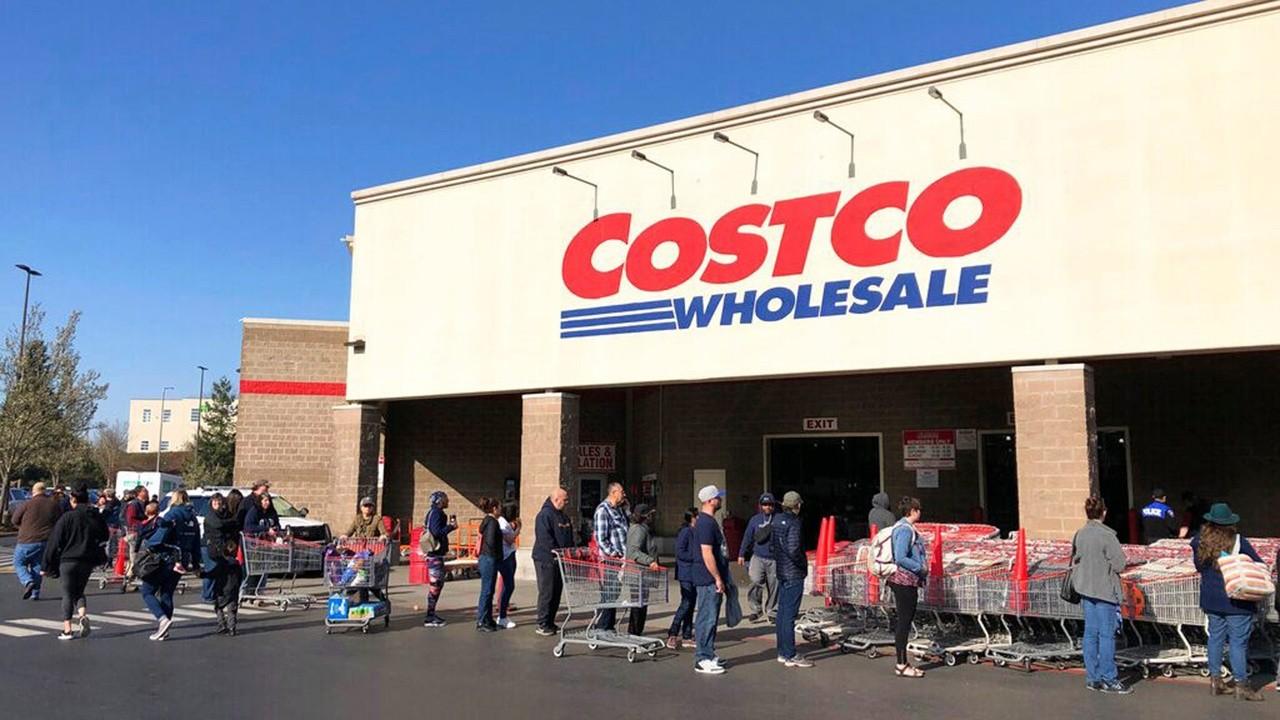Dairy farmers feel coronavirus squeeze as milk sales dry up
Many farmers have had to dump milk
Get all the latest news on coronavirus and more delivered daily to your inbox. Sign up here.
Dairy farmers in upstate New York who faced the wrenching task of dumping their milk earlier this month as the novel coronavirus spread are now confronting a grim future: months of low prices that could squeeze them out of business.
The pandemic prompted officials to close schools, restaurants and other nonessential businesses in the final weeks of March. That led to a sudden and sharp drop in demand for milk products, farmers and economists say, and an immediate supply glut.
CORONAVIRUS-SPURRED DEMAND COULD LEAD TO BONELESS CHICKEN SHORTAGE
The owners of Dykeman and Sons dairy farm in Fultonville said they had to dump more than two-dozen truckloads of milk after the plant that buys it to make cheese supplying restaurants scaled down operations.
Allenwaite Farms in Schaghticoke, which milks roughly 2,800 cows, dumped around 10 loads this month and is now developing plans to scale back worker hours, operations manager Paul Molesky said. He was raised to eat all the food on his plate, he said, and seeing good milk turned into fertilizer was hard.

In this Dec. 4, 2019, photo cows stand in a barn at Rosendale Dairy in Pickett, Wis. (AP Photo/Morry Gash)
"What we're going to have to do is just focus on efficiency, and really get back to the basics and try to squeak through to 2021," Mr. Molesky said.
CORONAVIRUS-RELATED FOOD STOCKPILING BOOSTS KRAFT HEINZ
The outbreak brought a major reversal for New York's dairy farmers, who have suffered "not a deep cut, but a long scrape" over the past five years, according to Andrew Novakovic, an agricultural economist at Cornell University. Milk prices have been in a slump since 2015, but farmers said they recently saw the economy accelerate and hoped to make gains.
The food-service sector consumes about 50% of the milk produced in New York, and demand crashed overnight, Mr. Novakovic said. Supply chains weren't able to immediately pivot to delivering consumer goods sold in grocery stores.
But since cows cannot simply be turned off, excess milk piled up quickly. The result was paradoxical and infuriating for the dairy industry: consumers unable to buy a product that farmers were forced to dump.
Ed Townley, chief executive officer of the Agri-Mark dairy co-op, wrote in an open letter last week that the nationwide dairy industry was producing 15% more milk than is needed. Farmers in his co-op, which operates plants in Vermont and northern New York that make Cabot and McCadam cheeses, were producing 5% too much milk. That translates into a $2 million monthly loss.
STOPPING CORONAVIRUS IN US MEAT PLANTS NEARLY IMPOSSIBLE, EXPERTS SAY
In January, the U.S. Department of Agriculture calculated the price in the market area covering upstate New York for Class III milk, which is used to make hard cheeses, would be $16.25 for every hundred pounds, or hundredweight. Future contracts for that grade are now trading at just above $13 for April and less than $12 in May.
The USDA forecast the all-milk price for 2020 would be $19.25 per hundredweight. On April 9, it revised that forecast to $14.35 per hundredweight. New York farmers say it costs between $15 and $20 to produce 100 pounds of milk, depending on the size of their operation.
And dairy farmers' payments lag by about a month, so they are just now bracing for the effects.
"The check we get in May is going to be horrendous. And that's when we put a lot of our crops in the ground," said Roy Dykeman, a partner in Dykeman and Sons. The farm is slowly lowering its production and reconsidering what it will plant, he said.
Several members of Congress representing upstate areas called on the USDA to buy milk for distribution in food banks. Sen. Kirsten Gillibrand (D., N.Y.) introduced a bill that would give farmers low-interest loans.
CORONAVIRUS SPURRED DEMAND COULD LEAD TO BONELESS CHICKEN SHORTAGE
Gov. Andrew Cuomo announced Monday that the state would buy excess milk, yogurt and cream cheese and donate it to downstate food banks. "We have to make that marriage between product upstate and need downstate," he said.
It was welcome news to the New York Farm Bureau, but it may not be enough. The industry group suffered a big defeat in the state Legislature in 2019, when Democratic lawmakers enacted a bill that would require overtime pay for agricultural employees who work more than 60 hours a week.
Milk is New York's top agricultural good, and dairy products generated $2.5 billion for farmers in 2018, according to the most recent New York State Department of Agriculture statistical report. The report said the number of dairy farms has been steadily declining: There were 4,194 farms in 2018, down from 5,622 in 2008.
CLICK HERE TO READ MORE ON FOX BUSINESS
Farm Bureau President David Fisher said in an interview that he expected more dairy operations would go out of business. His own farm, Mapleview Dairy in St. Lawrence County, milks 3,000 cows.
"Market demand is down, prices are going down, costs are not going down and labor costs are up -- if you can even find labor," Mr. Fisher said. "It is going to be a tough year for the farm economy."
GET FOX BUSINESS ON THE GO BY CLICKING HERE
Upstate Niagara Cooperative CEO Larry Webster, whose group includes 320 farmers, said it was able to minimize milk dumping but is urging its members to try to cut back production.
The co-op's fluid milk plants are being reconfigured to supply consumers, but he doesn't see higher prices on the horizon.
"It is going to be -- I hate to say catastrophic," Mr. Webster said. "But it's going to be huge."




















